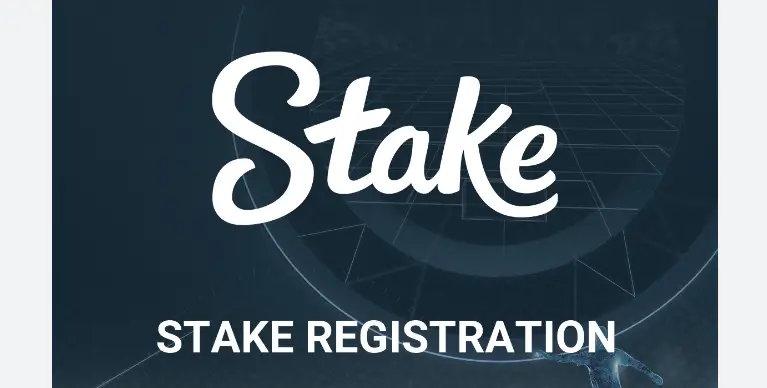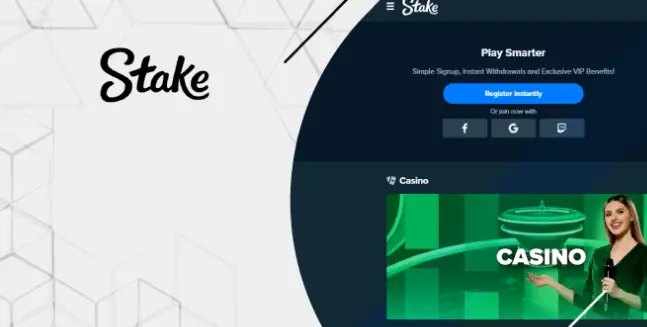Is Stake a Scam?
Yes, Stake.com is one of the most trustworthy online casinos available today for a safe gambling experience and is in no way a scam. Your available funds from Stake are always ready for withdrawal.
The Rise of Skepticism
There has been a noticeable increase in skepticism in many facets of society recently. Skepticism, which is defined as a questioning attitude or doubt towards established beliefs, institutions, and information, has become more prevalent as a result of several factors, including the quick spread of false information, increased access to a variety of viewpoints through digital platforms, and a general decline in trust in conventional sources of authority.
Skepticism in Media and Information
The proliferation of false information and the rise of fake news have made established media outlets increasingly untrustworthy in the digital age. Nowadays, people are exposed to various opposing stories and viewpoints, making it harder and harder to tell fact from fiction.
This skepticism has caused a loss in media confidence and a rise in reliance on alternative information sources. Critical thinking abilities and media literacy are becoming important tools for people as they navigate the immense ocean of information available to buck this trend.
Further fueling doubts about the integrity of media content is the ubiquity of deep fakes, manipulated photos, and edited videos. As technology develops, society must create effective fact-checking systems and generate trust in reliable sources.
Skepticism in Science and Expertise
Scientific studies and professional judgments have traditionally been recognized as trustworthy information sources. But in recent years, skepticism regarding scientific consensus has grown, especially in contentious fields like climate change, vaccinations, and genetically modified organisms (GMOs). Skeptics frequently cast doubt on the intentions of researchers, which fosters public suspicion of academic institutions.
https://www.youtube.com/watch?v=fDQh806G2HA&pp=ygUQSXMgU3Rha2UgYSBTY2FtPw%3D%3D
Science needs healthy skepticism and constructive criticism to advance, but unfounded skepticism can impede social progress. Building trust and understanding between experts and skeptics can be accomplished through encouraging open communication, encouraging transparency in research procedures, and cultivating scientific literacy.
The Business Model of Stake
The stake has become a disruptive force in the internet brokerage sector, enabling people to easily part easily in foreign markets.
Commission-Free Trading
The commission-free trading system is one of Stake’s business model’s most notable aspects. Unlike traditional brokerages that impose substantial costs for each trade, a stake lets customers buy and sell stocks and exchange-traded funds (ETFs) without paying any charges. By removing a large barrier to entry, this strategy has democratized investing by making it more readily available to people with different degrees of capital.
Stake aligns its interests with those of its consumers by providing commission-free trading because it also makes money from other sources, like currency conversion fees and premium membership services. Stake has established itself as a market leader thanks to this innovative pricing strategy. It has also drawn a sizable user base, particularly among younger investors who value clear, low-cost investment alternatives.
Access to Global Markets
Stake’s business strategy sets itself apart by giving investors access to various international markets. Stake allows customers to invest in US-listed equities and ETFs, giving them access to some of the world’s biggest and most prominent corporations.
While many traditional brokerages only focus on domestic markets. Users’ investment options and potential for diversification are increased because of this worldwide reach, allowing them to build portfolios specific to their investment objectives.
Additionally, Stake’s business model makes it easier to invest in fractional shares of pricey equities that customers might not have otherwise been able to buy. This feature encourages inclusion and enables investors with few resources to benefit from the high-priced firms’ development potential, helping democratize investing opportunities.
Investment Education and Resources
Investing in education and resources is crucial to enabling people to make wise financial decisions and accomplish their investment goals.
Building Financial Literacy
Beyond investment instruction, financial literacy also includes a broader awareness of personal money. It involves giving people the knowledge and abilities they need to manage their money wisely, make wise financial decisions, and successfully traverse the intricacies of the financial world.
Financial literacy is frequently included in investment education materials, addressing budgeting, saving, debt management, and retirement planning. These tools are intended to enable people to take charge of their financial situation, comprehend the ramifications of their investment choices in light of their overall financial goals, and make wise selections that align with their risk appetite and time horizon.
Investment Strategies and Techniques
Resources for investment education also offer insights into the different investment strategies and methods successful investors use. These publications cover a variety of asset allocation themes, including value investing, growth investing, index fund investing, and others. They examine the benefits and drawbacks of each strategy, present information on past results, and provide advice on how to put these ideas into practice successfully.
Furthermore, diversification, portfolio rebalancing, and long-term investing principles are frequently emphasized in investment education. These materials assist people in making informed decisions that align with their investing goals, risk tolerance, and time horizon by arming them with various investment ideas and tactics.
Security Measures and Asset Protection
The security of investments and asset protection are most important in today’s digital world.
Secure Online Platforms and Account Protection
When conducting online investment operations, it is crucial to pick trustworthy platforms that prioritize security. To safeguard user accounts and sensitive data, reputable online brokerage firms adopt strong security features like encryption techniques, secure login procedures, and two-factor authentication. Investors should conduct extensive due diligence before choosing platforms with a track record of upholding the security and privacy of their consumers.
Investors should also place a high priority on protecting their accounts. This entails setting secure, one-of-a-kind passwords, regularly updating them, and avoiding utilizing shared or public devices for trading. Individuals can considerably lower the danger of unauthorized access to their accounts and safeguard their investment holdings by implementing these practices.
Investor Education on Scams and Fraud
Investors must know about prevalent fraud schemes and practices that prey on the gullible. Resources for investing education frequently offer insights about common investment frauds, including Ponzi schemes, phishing scams, and fraudulent investment offers that promise inflated returns. Investors can recognize warning indications, exercise care, and steer clear of fraudulent activity by becoming knowledgeable about these frauds.
A further layer of security can be added by being aware of the warning signs of phony investment prospects, carrying out comprehensive due diligence, and consulting recognized financial experts. Maintaining asset security requires ongoing education and keeping up with fraudsters’ shifting strategies.
Comparisons with Traditional Investment Platforms
The emergence of contemporary investment platforms has changed how people interact with the financial markets.
Cost-Effectiveness
The cost-effectiveness of modern investing platforms vs. those used in the past is another comparison topic. Traditional platforms frequently have minimum investment requirements or charge commissions or fees for each trade, which can restrict access for people with limited financial resources.
Conversely, contemporary investment platforms frequently use a commission-free trading approach, removing entrance barriers and increasing accessibility to investing. These platforms can offer lower expenses and fees by utilizing automation and technology, enabling people to invest smaller sums of money without sacrificing the possibility of growth.
Global Market Access
Contemporary investment platforms have broadened investors’ horizons by granting access to international markets. It could be difficult for investors to access the growth potential of foreign companies through traditional platforms because they may be restricted to their home markets. On the other hand, modern platforms provide access to various markets, including exchange-traded funds (ETFs), international stocks, and US-listed stocks.
Thanks to this access to the global market, investors can diversify their portfolios and take advantage of investment opportunities outside of their local markets. Modern platforms also frequently allow for fractional investing, which further democratizes access to a wider selection of assets by enabling people to buy fractional shares of expensive stocks.
Regulation and Government Oversight
The integrity and stability of financial markets are crucially dependent on regulation and governmental control.
Investor Protection
Protecting investors against unethical behavior, market manipulation, and fraudulent operations is the main goal of regulation and governmental oversight. Laws and guidelines established by regulatory bodies govern the conduct of brokers, investment advisors, and exchanges. These policies hope to equip investors with the knowledge they need to make wise choices by ensuring openness, equity, and equal access to information.
Regulatory frameworks frequently require financial market participants to satisfy certain licensing and registration criteria, abide by particular codes of conduct, maintain acceptable amounts of capital, and employ risk management procedures. Regulating bodies also enforce laws pertaining to “know your customer” (KYC) and “anti-money laundering” (AML), which enhances the overall security and integrity of the financial system.
Market Stability and Systemic Risk Mitigation
In addition to preserving market stability and reducing systemic risks, regulation and government oversight emphasize these goals. Due to their complexity and connectivity, financial markets are prone to shocks and cascading repercussions. Regulatory organizations strive to stop excessive volatility, market manipulation, and other practices that can jeopardize the market’s integrity.
Measures to reduce systemic risks are frequently included in regulatory frameworks, such as capital adequacy standards for financial institutions and rules that encourage risk management and transparency. Regulatory agencies also monitor and evaluate market activity, supervise the operation of exchanges, and step in when necessary to preserve market stability and safeguard against potential systemic hazards.
FAQ’s
Is Stake a legitimate online gambling platform?
Yes, Stake is a legitimate online gambling platform that offers various betting options.
Is Stake licensed to operate?
Yes, Stake operates under appropriate licenses and regulatory frameworks to ensure compliance with legal requirements.
Can I trust Stake with my personal and financial information?
Stake employs industry-standard security measures to protect user information and transactions, providing a secure environment for customers.
What types of betting options are available on Stake?
Stake offers a range of betting options, including casino games and sports betting, providing users with diverse gambling experiences.
How long has Stake been in operation?
Stake has been in operation for several years and has established a significant presence in the online gambling industry.
Is customer support available on Stake?
Yes, Stake provides customer support services to assist users with their inquiries, ensuring a satisfactory user experience.
















